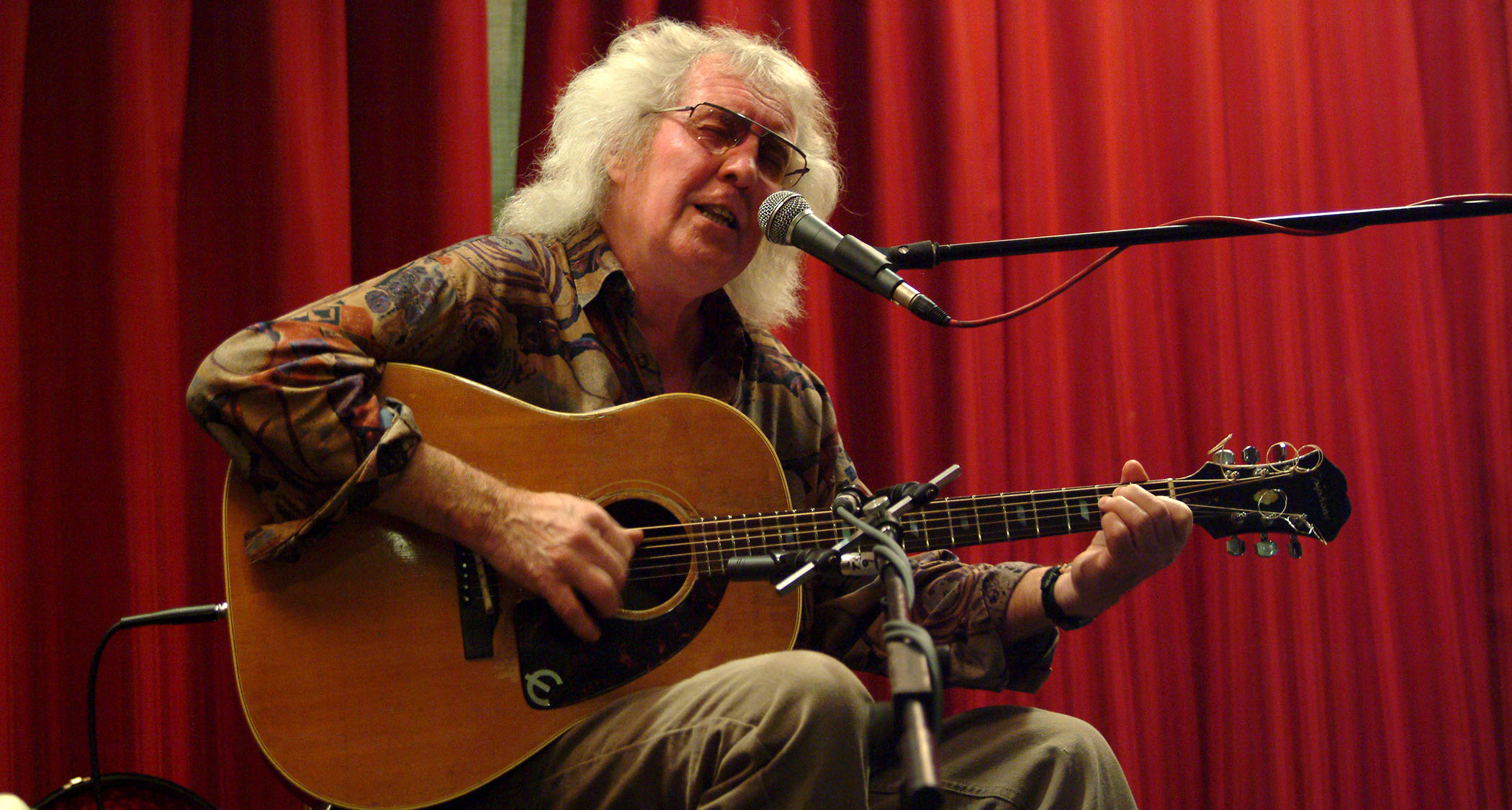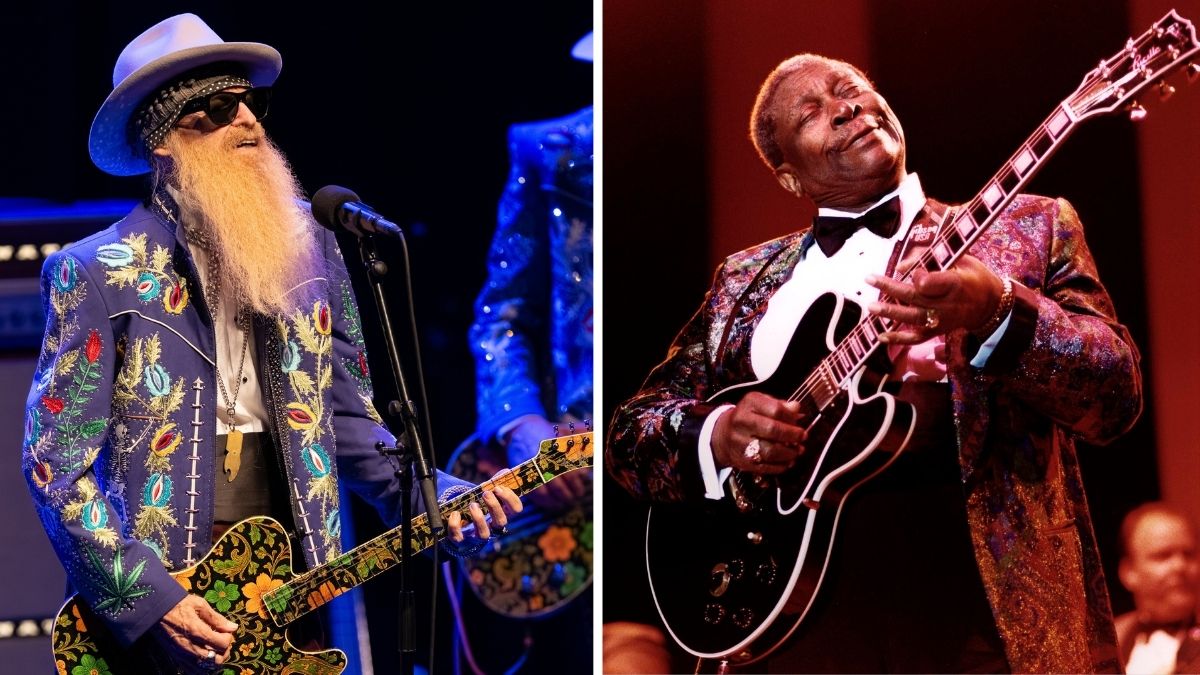He played a guitar held together by a belt, was admired by Keith Richards, covered by Springsteen and described by Bert Jansch as “the most underrated guitarist ever” – the life and times of a beatnik folk pioneer
Wizz Jones may not be a household name but he came out of the same scene as Eric Clapton and influenced everyone from Keith Richards to Thurston Moore

All the latest guitar news, interviews, lessons, reviews, deals and more, direct to your inbox!
You are now subscribed
Your newsletter sign-up was successful
Wizz Jones passed away in late April. He remains one of the truly undersung greats of 20th century folk guitar and a lynchpin of the UK ’60s folk revival.
Born Raymond Ronald Jones in Thornton Heath in 1939, Wizz Jones was given his nickname – Wizzy The Wuz – by his mother, due to his fondness for magic tricks.
He was influenced early by musicians such as Big Bill Broonzy and Woody Guthrie, and was also affected by Jack Kerouac and his seminal book On The Road, leading him to embrace the beatnik era and grow his hair long – a look that would accompany him throughout his life.
Says Keith Richards in his autobiography, Life: “Wizz Jones used to drop in [to art college] with a Jesus haircut and a beard. Great folk picker, great guitar picker.”
Although Wizz didn’t gain the same recognition as contemporaries like Eric Clapton, he quietly made his name performing in clubs throughout London, most notably the famous Les Cousins club in Soho’s Greek Street. This decision to pursue fame less avidly took a bit of time to accept.
“I regretted my own laziness at one point…” he told the Kingston Guardian in 2008. “It was in my 40s, I had a chip on my shoulder, I wanted to be a guitar player like Eric [Clapton] – he did what I’d been doing and really moved it on… But when I got to my 50s, I realised what I do is all right, you know, I really enjoy it.”
If fame eluded him, Wizz’s influence on other musicians was significant and he was considered among the greats by his peers.
All the latest guitar news, interviews, lessons, reviews, deals and more, direct to your inbox!
Indeed, Bert Jansch once said that Wizz was “the most underrated guitarist ever”. Martin Carthy told Tradfolk that “Wizz Jones had a huge repertoire that went across from trad English stuff to written stuff… [He] went right across into blues and jazz.”
Thurston Moore was also a fan and had invited Wizz on a tour with Sonic Youth in 2001 – which had to be cancelled due to 9/11, news of which came when Wizz’s plane was forced to change course mid-air.
From this recognition came great friendships, perhaps most notably with Ralph McTell, who shared some of his final chat with Wizz following his passing: “Your influence on my music means that some of your musical DNA is always with me and the countless others who have learned from your wonderful unique approach.”
Wizz had once invited McTell down to his beloved Cornwall to play some gigs and the pair were friends for decades afterwards, releasing duet albums About Time (2016) and About Time Too (2017).
Wizz’s output was extensive, beginning in 1969 with his self-titled album and running through the ’70s with well-known releases such as When I Leave Berlin in 1973 (the title song was covered live by Bruce Springsteen in 2012) and Happiness Was Free in 1976. His early work also included 1966 album Sixteen Tons Of Bluegrass with banjoist Pete Stanley, and Clive Palmer’s Banjoland, which was recorded in 1967.
Wizz’s most cherished guitar was an odd one. In 1959, he was walking past Lew Davis guitar shop on the Charing Cross Road and spotted ‘La Foley’, an unusual, 1930s or 40s guitar made by George Foley.
Your influence on my music means that some of your musical DNA is always with me and the countless others who have learned from your wonderful unique approach
Ralph McTell
“It was priced at £20,” he told Folk Roots Magazine. “Both Long John Baldry and Davy Graham had been into the shop and played the ‘La Foley’ and were thinking of buying it.”
Wizz ended up with the guitar, which was in good shape when he bought it, but it suffered the rigours of a performing musician and ended up being held together by pieces of Wizz’s belt, which he stuck to the body to stall the damage.
Eventually, the instrument was deemed barely playable and subsequently retired. Apparently, Ralph McTell suggested Wizz buy a second guitar and he succumbed and got a 1963 Epiphone Texan after Ralph spotted it in a London guitar shop.
The instrument quickly became his mainstay and was as synonymous with Wizz as Ralph’s 50s Gibson J-45 is with him.
Wizz’s later career contained several highlights. In 2013 at London’s Royal Festival Hall, Wizz contributed stunning performances of Weeping Willow Blues and High Days at the Celebration Of Bert Jansch tribute concert, which was followed by tours with John Renbourn and an album – 2016’s Joint Control – that would be John’s final recording.
He also released Come What May in 2017 with his son Simeon and Pete Berryman. Simeon’s son Alfie played on Moonshine, with the multi-generational Joneses even performing live together.
Wizz Jones will be remembered as one of Britain’s most talented and well-loved musicians, and as “an amazing guitarist and storyteller”, as guitarist John Smith said in his own recent tribute. Wizz is survived by his wife, Sandy Wedlake, their four children and four grandchildren.
- This article first appeared in Guitarist. Subscribe and save.
Glenn Kimpton is a freelance writer based in the west of England. His interest in English folk music came through players like Chris Wood and Martin Carthy, who also steered him towards alternate guitar tunings. From there, the solo acoustic instrumental genre, sometimes called American Primitive, became more important, with guitarists like Jack Rose, Glenn Jones and Robbie Basho eventually giving way to more contemporary players like William Tyler and Nick Jonah Davis. Most recently, Glenn has focused on a more improvised and experimental side to solo acoustic playing, both through his writing and his own music, with players like Bill Orcutt and Tashi Dorji being particularly significant.
You must confirm your public display name before commenting
Please logout and then login again, you will then be prompted to enter your display name.


